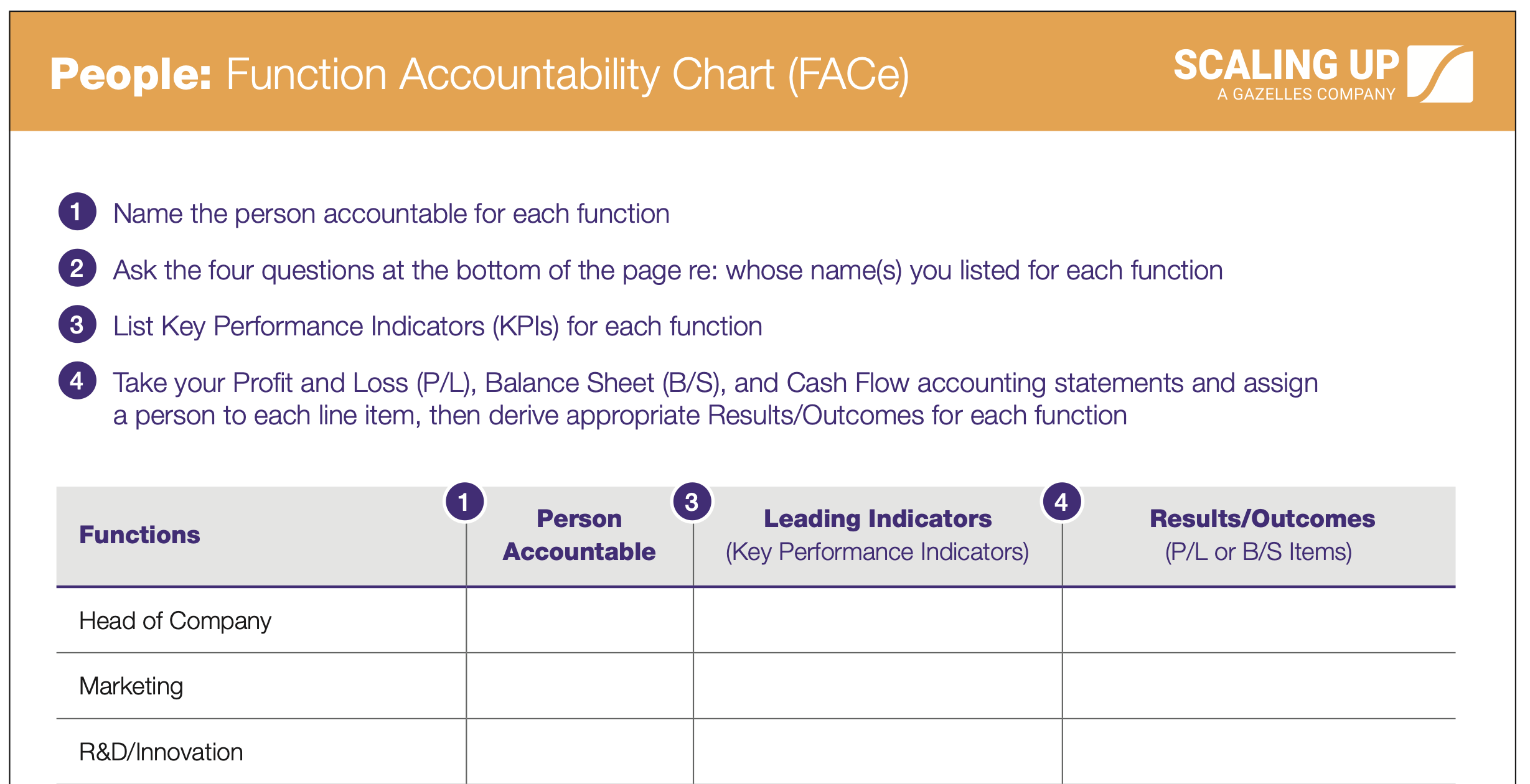The FACe (Functional Accountability Chart) is a tool used to clarify roles and responsibilities within an organization. Here are the steps to create a FACe chart:
Define the organizational structure: Start by mapping out the overall structure of the organization, including departments, teams, and reporting lines.
Identify key functions: Next, identify the key functions that are performed within the organization, such as finance, marketing, operations, etc.
Assign functional ownership: For each key function, assign a specific individual or team to be responsible for that function.
Define accountability: Define the specific tasks and responsibilities that each individual or team will be accountable for within their assigned function.
Document the FACe chart: Create a visual representation of the FACe chart, including the organizational structure, functions, functional owners, and accountability.
Communicate and distribute: Share the FACe chart with all stakeholders to ensure everyone has a clear understanding of their roles and responsibilities.
Review and update: Regularly review and update the FACe chart to ensure it remains accurate and relevant as the organization evolves.
By creating a FACe chart, organizations can improve communication, reduce confusion and overlap in responsibilities, and ensure that everyone is clear on what is expected of them.

